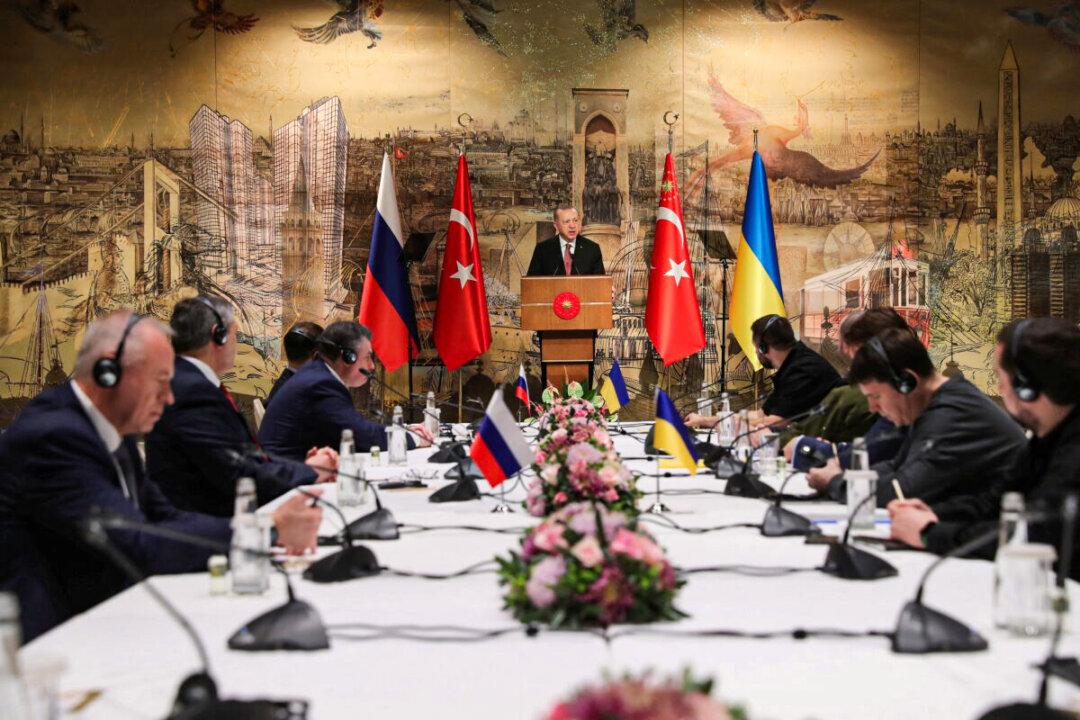Face-to-face peace talks have resumed as negotiators from Russia and Ukraine met in the Turkish capital of Istanbul in a search for common ground that would put an end to the war that has killed thousands of people and driven millions more from their homes.
Turkish President Recep Tayyip Erdogan welcomed the delegates, saying that “stopping this tragedy” is up to them.





